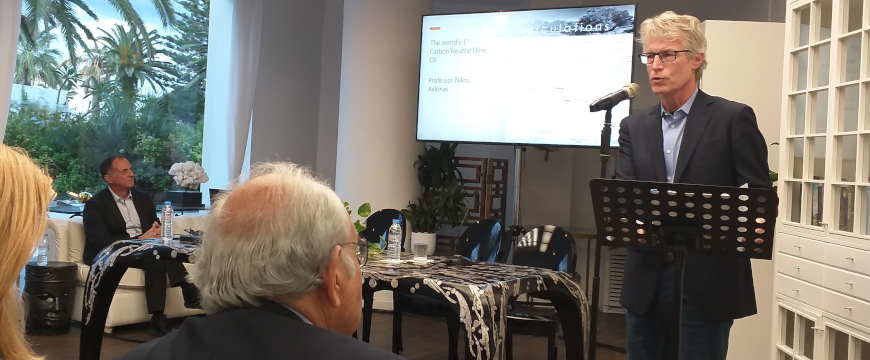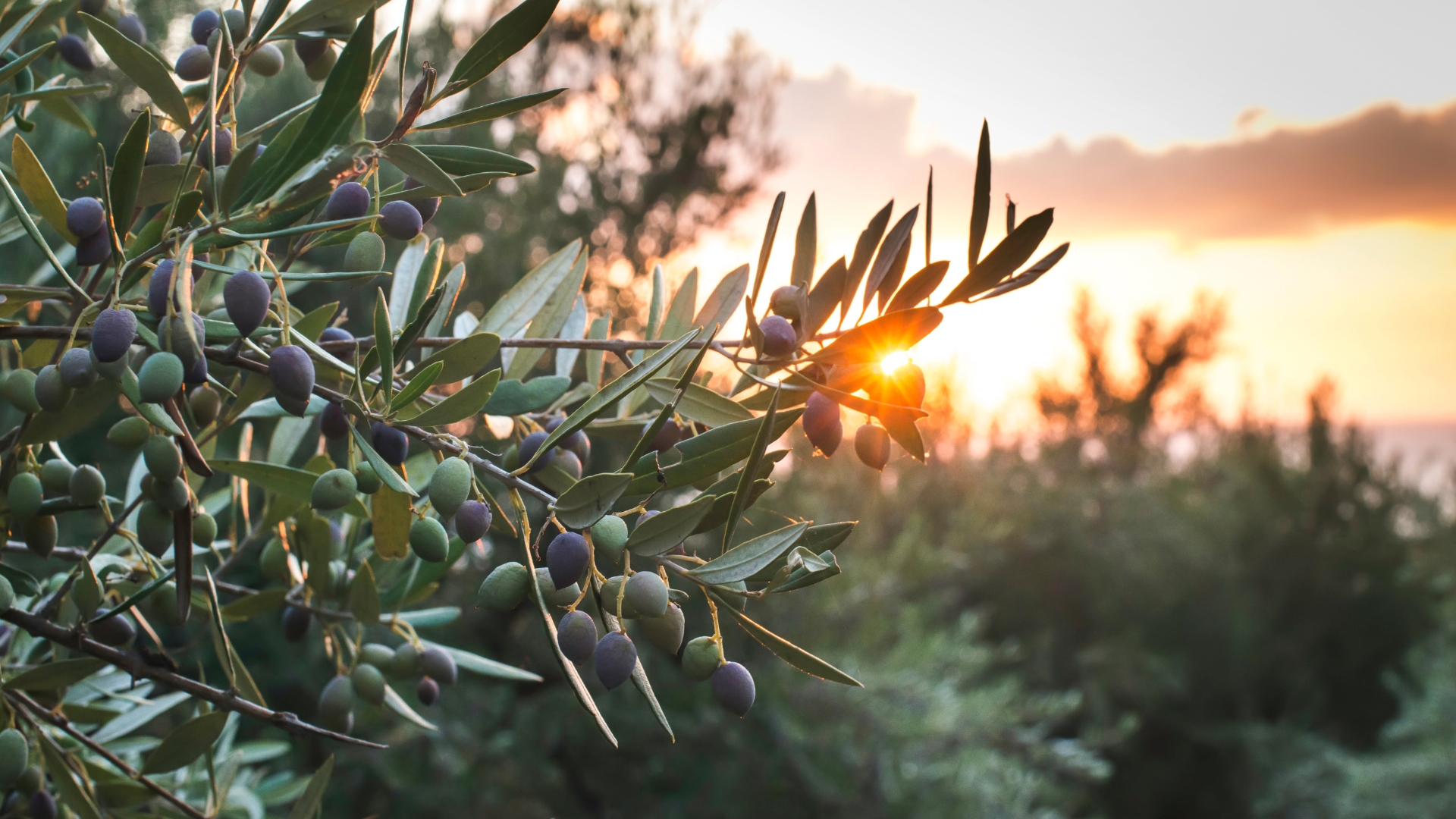By Lisa Radinovsky from Greek Liquid Gold.
At the 2nd Cretan Lifestyle Conference in Rethymno in November, Harvard University professor of medicine Stefanos Kales suggested that the first Hellenic Olive Network be created. Several experts agreed to invite Greek scientists working on olive trees and their products, as well as interested companies and farmers’ associations, to join such a network.
Initially, the proposal is to establish a virtual network where Greek scientists with expertise in any field related to the olive sector can register and indicate their relevant expertise, current projects, and research interests, and interested Greek companies and producers’ associations can also provide information about their activities and needs. Represented by its president, Eleni Melliou, the non-profit World Olive Center for Health has offered to host the network’s first website.
University of Athens professor Prokopis Magiatis proposed that all well-known Greek scientists working on the olive be invited to register, and that an open invitation be published for other interested scientists who have at least one scientific publication related to the olive sector. The scientists could share information about their relevant work, research, interests, and activities online. Interested companies and farmers’ associations could propose useful research subjects related to the olive sector and access information coming out of the research.
After the human resources, the needs of the industry and producers, and the offered know-how are recorded, the goal is to create a more organised institution. If the government offers the appropriate support, this could lead to the first university institution dedicated to the olive tree in Greece. There is already a proposal for the creation of a relevant department or research institute at the University of Peloponnese in Sparta, with the support of local authorities and chambers of Peloponnese.
Currently, although table olives and olive oil are the main products of the primary sector in Greece, contributing more than one billion euros to the GDP, there is no exclusively specialized educational or research institution dedicated to the olive sector. The country has two university departments and four postgraduate programs on vineyards and oenology, but no public university department that exclusively covers the subject of olive science and technology.
This is not due to a lack of interest or expertise: in Greece more than 200 research scientists deal with the subject of the olive tree in more than a dozen areas ranging from the obvious agronomics, food science, and sensory evaluation to the increasingly important medicine, pharmacology, and epidemiology/public health and the more surprising fields of engineering, geology, and archaeology. Yet these scientists’ focus has not been recorded.

“There is a strong need to bring in contact and collaboration all the Greek scientists working in the broad field of the olive,” emphasised Magiatis. “We don’t know exactly how many scientists work in this field. We don’t know the expertise of each scientist and the specific field of research. Yet the Greek scientific community has a big interest in olives, so we urgently need to do something about education and research coordination in Greece about olives, olive oil, and olive trees.”
Aris Kefalogiannis, founder of the Gaea olive oil and olive brand, entrepreneur and innovator, endorsed the proposal, pointing out that is hard for small and medium sized enterprises “to survive against multinationals without innovation.” Rather, they must “innovate or die.” Suggesting a Hellenic Olive Network could help with the necessary innovation, he presented three examples of situations in which scientific research led to successful products that helped a brand grow internationally and bring in far more income.
Award-winning olive and olive oil producer George Sakellaropoulos, who was introduced as “one of the most innovative producers in Greece,” called it “an absolute necessity” for Greek institutions to work with the private sector “to promote Greece’s most iconic and highly valuable agricultural products,” olive oil and table olives.
Sakellaropoulos mentioned numerous likely benefits of a Hellenic Olive Network. For universities and other institutions, it could help secure funding, share and improve knowledge, create jobs and synergies, enable product innovation, and make research applicable to products and the market. For producers and consumers, the network could help develop innovations and spread scientific information, promote Greek olive growing, and increase the quality and value of Greek olive products as well as Greece’s share of the international market.
The conference session dedicated to the issue of the network also included session chair Dan Flynn, the founding director of the University of California – Davis Olive Center, and presenters Vasilis Vasiliou, Yale School of Public Health professor and co-founder of the proposed Yale Olive Sciences and Health Institute, and Apostolos Kyritsakis, Emeritus Professor at the International Hellenic University and Chairman of the Greek Observatory of Oxidative Stress, who all strongly endorsed the proposed network. During the session, speakers stressed the need for cooperation among scientists in Greek universities and research institutes, as well as scientists of Greek origin from abroad, with Greek industry and the productive sector in order to solve the problems faced by the olive sector.
Scientists, companies, and producers’ organisations interested in joining the Hellenic Olive Network are invited to email info@worldolivecenter.com or call 210 7010131 (in Greece).
*Originally published on Greek Liquid Gold: Authentic Extra Virgin Olive Oil (greekliquidgold.com). See that site for recipes with olive oil, photos from Greece, agrotourism and food tourism suggestions, and olive oil news and information.
